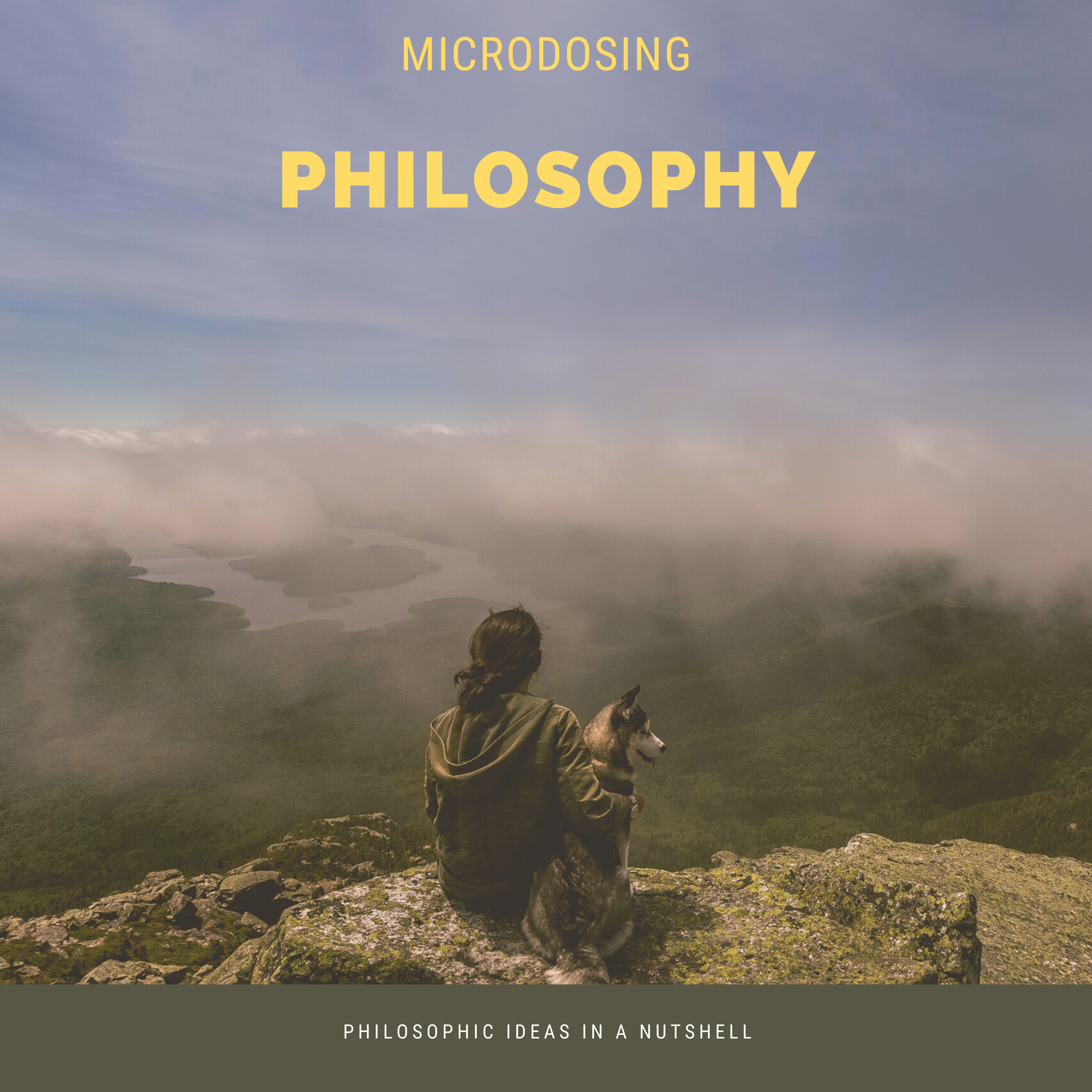- Basic Propositional arguments
Let's have a quick look at arguments with an "if... then" structure.
E29 - 8m - Feb 6, 2022 - Syllogisms
Here is a quick look at Syllogisms and how to apply rules to check validity.
E29 - 10m - Jan 27, 2022 - Critcal Thinking: part2
A look at statement types A, E, I, & O with negations.
E29 - 11m - Jan 15, 2022 - Critcial Thinking: An Introduction
Here I will review a few basic concepts and terms of logic that we will use in the following episodes. I want to clarify statements and propositions, and the difference between valid and sound arguments.
E27 - 7m - Jan 15, 2022 - Bitzer's Idea of Constraints
Bitzer's Rhetorical Situation involves three ideas: exigence, audience, and constraints. In this episode, I discuss the importance of constraints. Constraints are an essential element of a persuasive appeal. They can make or break a rhetorical audience.
E25 - 8m - Sep 8, 2021 - Bitzer's Rhetorical Theory: Exigence and Audience
Two elements that create a rhetorical situation are exigence and audience. What is a rhetorical exigence & rhetorical audience?
E24 - 8m - Sep 6, 2021 - Bitzer's Rhetorical Situation part one
In 1968 Bitzer offers a revolutionary way of thinking about rhetoric. He points out that we use rhetoric much more often than we might expect, and that Aristotle's three modes of appeal fall short in understanding the rhetorical needs. Bitzer's theory is a Copernican revolution in rhetorical theory.
E23 - 9m - Sep 5, 2021 - Booth's Rhetorical Stance
Booth's Rhetorical Stance develops Aristotle's rhetorical Triangle idea by stressing the importance of a flexible balance between the modes of appeal. If any mode of appeal is pushed too far and given too much weight, we have a corruption of communication.
E27 - 8m - Sep 4, 2021 - A quick look at Aristotle's Modes of Appeal
Here is a quick summary and review of the Modes of Appeal. These modes are the basic tools we use for persuasion.
E21 - 4m - Sep 3, 2021 - Rhetoric: an introduction
What is rhetoric? Aristotle provides us with a basic framework for approaching the art of persuasion. Let's have a quick look at his rhetorical triangle and how it might be applied to a job interview.
E20 - 10m - Sep 2, 2021 - Lucretius and Epicureanism
A quick look at Epicureanism and the poetry of Lucretius.
E19 - 12m - Apr 4, 2021 - Stoic Philosophy
Stoicism was one of the most influential schools of philosophy in Rome. I will outline some of its main features.
E16 - 10m - Apr 4, 2021 - Plato's Phaedo: Part Two
Plato now explores two important themes. First, we see the role of Ideas or Forms taking shape. The answer to ethical relativism will require some metaphysical work. Second, we see a Platonic notion of the psyche or soul take shape.
E16 - 10m - Mar 14, 2021 - Plato's Phaedo: Part One
Plato's Phaedo is one of his most famous dialogues. It features Socrates in his prison cell on his day of execution. I will mention some of the important friends who were visiting Socrates that day, and I will explore some of the issues raised. Part two will look at how the theory of Forms is developed.
E15 - 17m - Mar 12, 2021 - Plato's Euthyphro
Socrates meets Euthyphro by the archon office, the archon in charge of the courts. Socrates is facing charges of impiety and Euthyphro is charging his father with impiety. Socrates suggests that Euthyphro must know what piety is if he is going to bring such serious charges against his father. In a good aporetic fashion, Socrates will reveal that Euthyphro does not know what he thinks he knows. This dialogue also demonstrates important points of logic.
E14 - 9m - Mar 5, 2021 - Plato: a basic introduction
I will say just a few words about Plato's life and the influences on his writing. His first calling in life was dramatic poetry, and this background follows through into his dialogues.
E13 - 9m - Feb 24, 2021 - Socrates
Socrates influenced many great thinkers. I offer just a few highlights of his life and thought which completely altered the development of philosophy.
E12 - 17m - Feb 19, 2021 - Arsitotle on the Soul (De Anima)
Here are some thoughts on Aristotle's approach to the idea of soul or psyche. It explains our unity, but also touches on our nous/intellect and how we grasp the world.
E12 - 12m - Jan 27, 2021 - Substance in Aristotle's Meatphysics VII
Aristotle floated a preliminary idea about a primary substance in the Categories. He suggested the primary substance could be the individual such as Socrates because all the other categories depend on that individual thing for their existence. But after introducing the idea of matter and the other causes, he sees a problem. The individual thing cannot be the primary substance. It must be the species-form.
E11 - 8m - Jan 25, 2021
